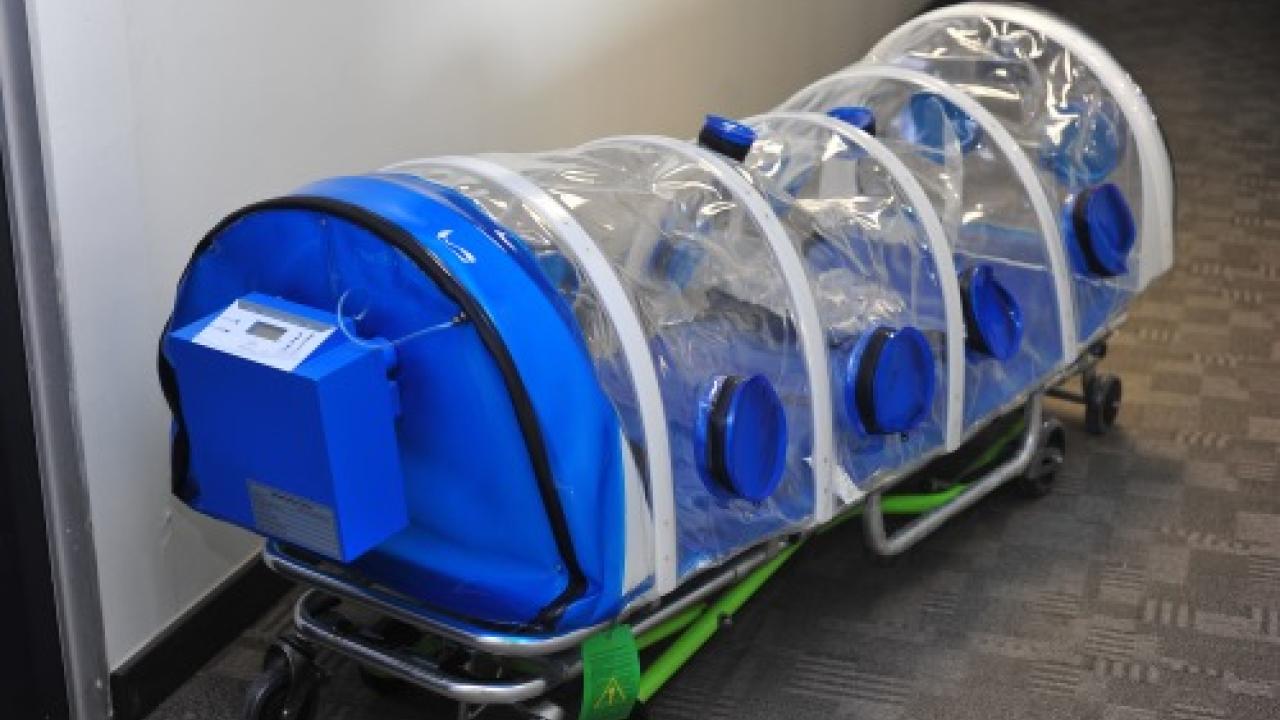Prognosis that can cut red tape and save lives

Lifesaving: The Isopod is the first and, currently, the only such biological isolation chamber in Nigeria. Picture: FDN.
Since the outbreak of Covid-19, there has been unprecedented demand for patient transfers throughout west Africa. However, this sheer volume is causing problems.
According to Oluwatosin Aremu, general manager of Flying Doctors Nigeria (FDN): “The major challenge is timely issuance of permits and approvals, considering that every second counts in medical evacuation.”
This is not surprising, considering the age-old problems associated with securing flight permits by scheduled operators from anglophone west African countries intending to connect with their francophone-controlled neighbours.
FDN, which is currently managed by a board of directors, was established in 2007 by Ola Brown, a British-Nigerian medical doctor and healthcare entrepreneur, who was motivated to start the company after experiencing the loss of her sister when no services were available to save her life in time.
A solution to the delays in issuing permits and approvals needs effective and timely coordination among the regulatory and issuing bodies, said Aremu.
To improve service in the sub-sector, FDN has called on all stakeholders to meet and create a standard operating policy for aeromedical transfers.
One of the numerous challenges of evacuation procedures has been the high risk involved in the transfer of patients – including the increased possibilities of flightcrew exposure due to prolonged close contact with contagious patients.
Aeromedical organisations across the world have had to develop new, specific, procedures to limit cross-contamination.
FDN has also sought solutions to some of these challenges, one of which is intensified personnel training. “Just like every other business around the world, we felt the impact on our business process and operations but we were able to quickly adjust so as to mitigate the negative impact,” said Aremu.
“Experts have said that one of the effective ways of fighting the spread of the virus is through testing. We concur, so jointly with the investment arm of our business, which is flying doctors healthcare investment company (FDHIC), we created interventions that are helping to make testing faster, cheaper and safer.
“One such intervention is our mobile testing booth, which has significantly reduced the reported cases of healthcare workers’ infection.
“We have also managed a lot of asymptomatic/mild cases of Covid-19 through our telemedicine platform, which reduces the risk of cross-infection but still gives personalised healthcare for the patients.
“We have built a strategic partnership and relationship with all the stakeholders who are typically involved in the transfer of patient from bed-to-bed. Some of these include hospitals, regulatory bodies, airlines and so on.”
Dr Ola Brown: Established the company in 2007.
FDN has also introduced the first and, currently, only Isopod biological isolation chamber in Nigeria.
Unveiling the Isopod, medical director, Dr Jibayo Oyedele, said “Our focus has always been to ensure that exceptional healthcare services are available to people in their locations of choice. With this isolation pod, we are now able to evacuate and transport Covid-19 patients to their preferred destination to access medical care without the risk of cross-infection to the medical and aviation crew.”
Millions of direct and indirect jobs have been lost due to the pandemic and the number of low-income earners and unemployed people has increased, especially in sub-Saharan Africa. So, as west Africa awaits vaccines from the western world in the middle of economic downturns, how is FDN responding?
“We continue to improve on our innovations in terms of our medical evacuation to suit all categories of earners,” said Aremu.
“Our emergency transport unit (ETU) and commercial medical escort (CME) are a more cost-effective means of aeromedical transfer. We are not only putting more structures in place to ensure successful aeromedical transfers in terms of cost, time and safety, but also funding and operating healthcare infrastructure projects across Africa.”
Flying Doctors has been on the frontline against coronavirus, setting up mobile testing centres in response to both government and private requests. It has also set up a $1 billion fund to invest in health care across Africa.
“We have been investing in Nigeria, we wanted to start investing across Africa and that’s the purpose of opening up to external investors and to now invest in more companies,” said Dr Brown.
Chukwu Emeke reports.
Stay up to date
Subscribe to the free Times Aerospace newsletter and receive the latest content every week. We'll never share your email address.
